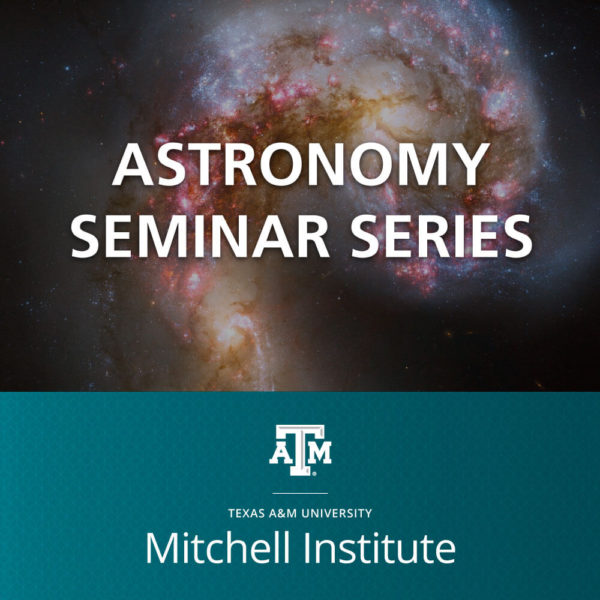
Speaker:
Tom Holoien (Carnegie Observatories)
Host:
Justin Spilker
Location:
Address:
Mitchell Institute for Fundamental Physics & Astronomy
College Station, Texas 77843
Copyright © 2024. All rights reserved, Texas A&M University Trademark | Texas A&M University, College Station, Texas 77843